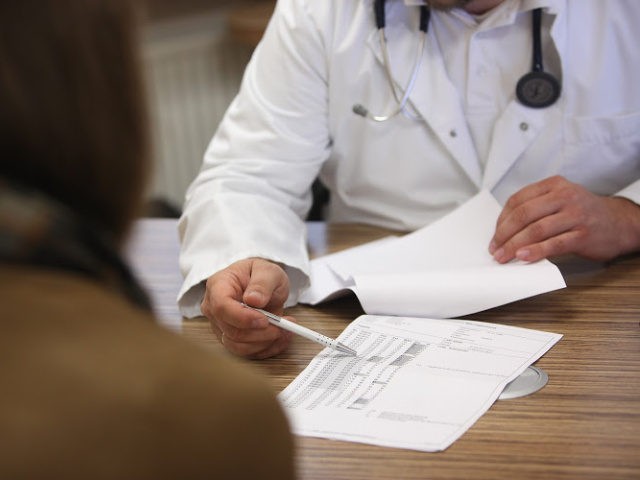In a recent interview, tech guru Peter Diamandis made the case for the big tech Masters of the Universe becoming America’s healthcare providers. Diamandis believes that if companies like Google and Amazon can gather even more information about every detail of your life, they will be better able to manage your health than traditional doctors and hospitals.
In an interview in Fast Company, Peter Diamandis, co-founder of the X-Prize, Singularity University, and Health Longevity Inc. argues that companies such as Apple, Google, and Amazon could do a better job than most current healthcare providers.
Fast Company asked Diamandis about his vision of the future for modern tech companies, to which he replied that soon tech companies will be our healthcare providers.
“We’re going to see Apple and Amazon and Google and all the data-driven companies that are in our homes right now become our healthcare providers,” he says, referring to smart speakers such as Google’s Assistant, Amazon’s Alexa, and Apple’s HomePod. While many of these home voice assistants started with simple tasks like restocking home pantries and surfacing cooking tutorials, they’re already starting to move into the business of managing family well-being.
Diamandis thinks that Silicon Valley tech firms may actually be better suited to be healthcare providers due to the amount of data they have on their users. Fast Company writes:
Diamandis posits that the more information is available about you—your genetic makeup, your health history, what you ate for breakfast, the bacteria in your bowel movement, how you slept last night, what kind of sound you’re exposed to every day—the better artificial intelligence will be at spotting your potential for illness and suggesting care before the problem becomes intractable. This approach might shift the medical establishment from a structure that treats disease once it’s wreaking havoc in your body to one that prevents the disease from striking in the first place. “It is literally hundreds if not thousands of times cheaper to do that,” he says.
Some disagree with Diamandis, such as Henrik Vogt, a post-doctoral fellow at the University of Oslo Center for Medical Ethics who stated in a recent paper that big tech may not deliver as Diamandis imagines:
In a recent paper, Henrik Vogt, a post-doctoral fellow at the University of Oslo Center for Medical Ethics, lays out why big data may not deliver in the way Diamandis suggests. He says that as technology gets better at spotting indications of illness or the prospect of sickness in the body, it will surface more and more signals. But a predisposition for a disease does not equal a diagnosis. “The main problem for big data screening is that monitoring many features of the body with highly sensitive technologies is bound to detect many abnormalities but without the ability to tell which, if any, will become clinically manifest. As a result, more people may be labeled with more harmless conditions,” he writes.
Even if a person has a high likelihood for a disease, they may never present symptoms, Vogt notes. As more services and devices—such as direct-to-consumer gene sequencing and wearables with heart rate variation detection—get more sophisticated, there is more visibility into a person’s body. But there is also a lot of noise in this information. Not every little genetic abnormality may be meaningful. Different bodies may have different idiosyncrasies. While there is more room for prevention as we are all more aware of our disease risk, Vogt makes the case that there is also a risk of overtreatment, which could be costly and may also cause patients harm. Vogt also explained via email that there might be issues in investing too much in big data rather than another approach, such as social or institutional change.
Read the full article in Fast Company here.
Lucas Nolan is a reporter for Breitbart News covering issues of free speech and online censorship. Follow him on Twitter @LucasNolan or email him at lnolan@breitbart.com

COMMENTS
Please let us know if you're having issues with commenting.